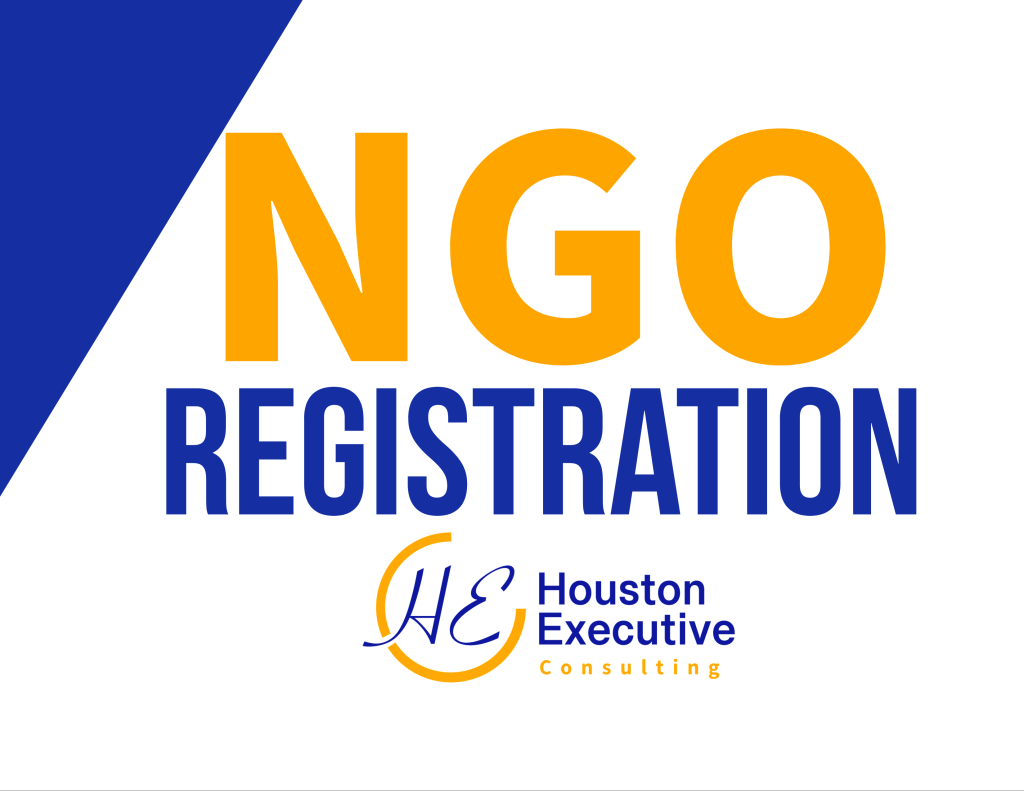Top 10 International NGOs in Tanzania: Discover the Pinnacle of Impact
Tanzania is a country that boasts a rich cultural heritage and stunning natural landscapes. However, the country faces several social and environmental challenges. To address these issues, international non-governmental organizations (NGOs) play a crucial role in development and humanitarian efforts.
The following are the top 10 international NGOs that are making a significant impact in Tanzania.
- World Vision (WV)
World Vision (WV) is a humanitarian organization that operates worldwide. The organization aims to help children, families, and communities overcome poverty and injustice. WV has provided aid and assistance for over 70 years and operates in almost 100 countries.
Their work includes providing clean water, healthcare, education, and economic opportunities. Additionally, they respond to emergencies and disasters, providing life-saving assistance and support to those affected. In summary, WV’s mission is to create a world where every child can thrive and reach their full potential.
World Vision (WV) in Tanzania strongly focuses on Child Well-being Aspirations (CWBA). Their work includes the following essential aspirations:
- Ensuring that girls and boys enjoy good health by providing them with proper nutrition, protecting them from infections, diseases, and injuries, and ensuring they and their caregivers have access to essential health services.
- Ensuring that girls and boys get the necessary skills and knowledge to lead successful lives by teaching them to read, write, and use numeracy skills, make sound judgments, protect themselves, manage emotions, and communicate their ideas. Additionally, adolescents are ready for economic opportunities, and children can access and complete primary education.
- Ensuring that girls and boys experience the love of God and their neighbors by promoting positive relationships with peers, family, and community members. Children grow in an environment that recognizes their freedom to grow in awareness and experience God’s love. They also learn to value and care for others and their environment and are instilled with hope and vision for the future.
- Ensuring that girls and boys are cared for, protected, and actively involved in decisions that affect their lives. Their work consists of caring for children in a loving, safe family and community environment with safe places to play; ensuring that parents or caregivers provide well for their children; celebrating and registering children at birth, and respecting children as active participants in decisions that affect their lives.
If you require more information or want to contact WV Tanzania, please visit their website at https://www.wvi.org/tanzania.
- Doctors Without Borders (Médecins Sans Frontières – MSF)
Doctors Without Borders, also known as Médecins Sans Frontières (MSF), is an international medical humanitarian organization. It provides medical assistance to people affected by conflicts, epidemics, natural disasters, or limited access to healthcare. MSF was established in France in 1971 by doctors and journalists, including Bernard Kouchner and Jacques Bérès.
MSF is renowned for its global medical interventions in crisis situations, and Tanzania is no exception. MSF operates in regions with limited healthcare infrastructure and provides essential medical services, including surgery, maternal care, and disease control. Their work in Tanzania has been instrumental in saving lives and improving healthcare outcomes.
Doctors Without Borders/Médecins Sans Frontières (MSF) runs a range of health services for Burundian refugees and local communities in Tanzania’s Kigoma region. MSF activities in Tanzania focus on providing health care for Burundian refugees and local communities in the Kigoma region. MSF has also responded to several emergencies in the country, including floods.
Records cited from the year 2022 indicate that Doctors Without Borders/Médecins Sans Frontières (MSF) achieved 18,700 outpatient consultations, treated 7,790 malaria cases, made 5,810 individual mental health consultations, and assisted 4,300 births, including 46 cesarean sections.
If you require more information or would like to contact Doctors Without Borders/Médecins Sans Frontières (MSF) Tanzania, please visit their website at https://www.doctorswithoutborders.org/what-we-do/where-we-work/tanzania.
- Oxfam International
Oxfam is a confederation of 20 international organizations that work alongside partners and local communities in more than 90 countries to end the injustices that lead to poverty. Their focus is on empowering people to build a future that is secure, just, and free from poverty.
Oxfam’s work involves providing emergency response and humanitarian aid, promoting sustainable livelihoods, advocating for social justice and economic equality policies, and empowering women and marginalized communities to claim their rights and achieve their full potential.
Oxfam is committed to fighting poverty and inequality worldwide. In Tanzania, Oxfam focuses on sustainable development projects, Conflicts and disasters, Extreme inequality and essential services, Food, climate and natural resources, Gender justice and women’s rights, water, and sanitation, empowering local communities economically and socially. Oxfam is fostering positive change in Tanzania through initiatives like women’s empowerment programs and agricultural projects.
For more Details about Oxfam’s work in Tanzania, please visit their website at https://www.oxfam.org/en/tags/tanzania.
- Save the Children
Save the Children is a leading independent organization that focuses on improving the lives of children across the globe. They operate in more than 120 countries and work towards saving children’s lives, fighting for their rights, and helping them reach their full potential. In 2021, they provided essential support to over 400 million vulnerable beneficiaries.
Of these, 180 million were children, which makes up 44.7% of the total number of beneficiaries reached. 75 million were directly reached by their programs, with 43 million being children. Additionally, their programs indirectly reached over 330 million beneficiaries, out of which 139 million were children.
Save the Children Work in Tanzania
Save the Children began working in Tanzania in 1986 on Pemba Island-Zanzibar, focusing on maternal and newborn health. Over the years, Save the Children Tanzania has expanded its operations to 13 regions in mainland Tanzania (Dar es Salaam, Kigoma, Dodoma, Iringa, Morogoro, Rukwa, Mbozi, Tanga, Arusha, Mwanza, Shinyanga, Mtwara, and Lindi) and two in Zanzibar (Unguja and Pemba), with ten field offices spread across the country.
Save the Children focuses on children’s health and nutrition, protection, education, and rights governance programming. The organization employs a system-strengthening approach, working in partnership with the Government of Tanzania, civil society organizations, and international organizations.
Save the Children ensures that every child in Tanzania survives, learns, and is protected. Its goal is to guarantee that no child dies from preventable causes before their fifth birthday, that all children receive a quality primary education, and that violence against children ceases.
To achieve this, Save the Children takes an innovative and influential approach, partnering with other organizations to achieve results at scale. The organization prioritizes the most deprived and marginalized children, and in 2021, it reached over 3.5 million beneficiaries (30% direct, 70% indirect). Out of the slightly over 1 million direct reaches, 66% were children (50% girls), and 68% of the indirect reach were children.
For more details about Save the Children’s work in Tanzania, please visit their website at https://tanzania.savethechildren.net/about-us/about-save-children.
- CARE International
CARE International is working towards promoting social and economic development in Tanzania. They have initiated various projects, including women’s empowerment, education, and healthcare, to uplift the communities and drive sustainable change.
CARE’s work in Tanzania focuses on natural resource management, climate change adaptation, smallholder agriculture, and women’s empowerment. In rural areas, where most people depend on natural resources for their livelihoods, CARE is helping communities use the land effectively to produce nutritious food while conserving the environment.
Their efforts also focus on empowering rural women and girls by providing access to quality primary education, village savings, and loan programs that improve access to economic resources and boost livelihoods. CARE started its operations in Tanzania in 1994 in response to the influx of refugees fleeing the Rwandan genocide.
CARE Tanzania has a primary focus on addressing the needs of specific groups, which include:
– People who heavily depend on natural resources in areas with severe environmental restrictions, particularly women and girls.
– Women and adolescent girls of reproductive age who live in rural, underserved areas.
– School-aged girls who live in rural, underserved areas.
Care has facts, figures, and cited works from authoritative sources; please learn more from their website at https://www.care-international.org/our-work/where-we-work/tanzania.
- Plan International
Plan International focuses on child rights and equality, striving to create a world where all children can reach their full potential. In Tanzania, their initiatives span education, healthcare, and protection, particularly emphasizing gender equality and empowering girls and young women.
Plan International is an independent organization that specializes in development and humanitarian efforts. Their primary focus is on promoting children’s rights and equality for girls. They have been active in Tanzania since 1991 and operate in 13 regions.
Plan International collaborates with children, young people, communities, supporters, partners, and the government to address the root causes of the challenges and inequalities children and young girls face. They also support vulnerable children, adolescent girls, and their families to ensure they have access to essential services such as healthcare, education, clean water, sanitation, and protection.
Plan International’s current priorities in Tanzania include the following:
- Child protection
- Adolescent sexual and reproductive health and rights
- Inclusive, quality education
- Water, sanitation, and hygiene
- Youth economic empowerment
- Responding to emergencies
You can discover more about Plan International’s current projects, activities, and achievements from their website at https://plan-international.org/tanzania/.
- Amnesty International
Amnesty International is a leading organization that advocates for human rights across the globe. In Tanzania, the organization works tirelessly to address critical issues such as freedom of expression, justice, and equality. Amnesty International creates a more just and rights-respecting society through extensive research, advocacy, and campaigns.
The International Rescue Committee (IRC) is an organization that helps people who have lost livelihoods by conflict and disaster. The IRC teams provide protection intervention, healthcare, infrastructure, learning, and economic support to people in 40 countries worldwide, with specialized programs designed to support women and children.
The IRC aims to help individuals and communities recover from devastating circumstances and regain control of their future. The ongoing conflict in neighboring countries forces thousands of refugees to seek critical support from the International Rescue Committee in Tanzania.
Get more highlights about IRC work, Press releases, and other details on their website at https://www.rescue.org/country/tanzania.
- World Wildlife Fund (WWF)
Through close collaboration with local communities and authorities, WWF dedicates its efforts to preserving Tanzania’s rich biodiversity and ecosystems.
Their initiatives include the safeguarding of wildlife, the promotion of sustainable resource management practices, and the combating of the illegal wildlife trade. The goal of WWF is to halt the degradation of the planet’s natural environment and create a future where humans can coexist in harmony with nature.
In Tanzania, WWF protects natural resources – oceans, land, and wildlife – so all people and future generations can continue benefiting from food, energy, and water.
If you want to learn more about WWF in Tanzania, please visit their website at https://www.wwf.or.tz/
- ActionAid
They are an affiliate member of ActionAid International Federation, which is a global justice organization working to achieve social justice, gender equality, and eradication of poverty. They started development programs in the country in 1998 and registered under the Non-Governmental Organizations Act of 2002, with registration no. 00NGO/R2/00031. they have a National Board and the General Assembly.
ActionAid is committed to ending poverty and injustice worldwide. In Tanzania, they work with local partners to address issues such as land rights, climate change, and economic inequality. Through community-led initiatives, ActionAid is fostering resilience and sustainable development in Tanzania.
ActionAid’s work in Tanzania focuses on four thematic areas: the following.
Empowering Women for Economic Activities
Women have been at a disadvantage for generations, and their role as agents of change is severely limited. It is imperative to empower women to confront unequal power dynamics and gender inequalities for a more equitable society.
Building Alliances and Movements
To promote democratic governance, access to quality essential services, and effective management of public resources, people need to become strong drivers of change. Building alliances and movements that can push for positive, sustainable change is crucial.
Land and Climate
Securing climate justice and strengthening the resilient livelihoods of people living in poverty and exclusion, particularly women and youth, is paramount. The organizations need to take urgent action to mitigate the negative impacts of climate change on vulnerable communities.
Youth
Young people comprise most of society, but their needs don’t receive the attention they deserve. They must work to advance the rights of children and youth, promoting their holistic development and ensuring they have access to resources and opportunities that can help them thrive.
For more details, visit their website at https://tanzania.actionaid.org/
- The Nature Conservancy
The Nature Conservancy is a nonprofit organization committed to preserving the lands and waters supporting all life. They strive to safeguard the natural habitats of plants and animals, combat climate change, and encourage the sustainable use of natural resources. Their efforts extend worldwide and entail collaboration with governments, communities, and other organizations.
The Nature Conservancy is a nonprofit organization that is exempt from taxes and has been granted charitable status (with a tax identification number 53-0242652) under Section 501(c)(3) of the U.S. Internal Revenue Code. By law, donations made to the organization are eligible for tax deductions. The global sites represent either regional branches of The Nature Conservancy or local affiliates that are independent entities.
They are collaborating with partners to safeguard Tanzania’s natural resources for a sustainable future. Their efforts extend from the shores of Lake Tanganyika, through the grasslands of the north, to the waters of the Indian Ocean. They are working extensively across Tanzania to aid communities and the environment.
Discover more about The Nature Conservancy’s activities in Tanzania on their website: https://www.nature.org/en-us/about-us/where-we-work/africa/tanzania/
Conclusion
Tanzania, a country highly regarded for its diverse flora and fauna, rich cultural heritage, and vibrant communities, is home to several international non-governmental organizations (NGOs) committed to positively impacting the country’s socio-economic and environmental landscape.
These organizations are actively involved in a wide range of programs and initiatives that aim to improve the livelihoods of Tanzanian communities, promote sustainable development, and protect the country’s natural resources. Their collective efforts are a testament to the spirit of global cooperation and solidarity in pursuing a better world.












